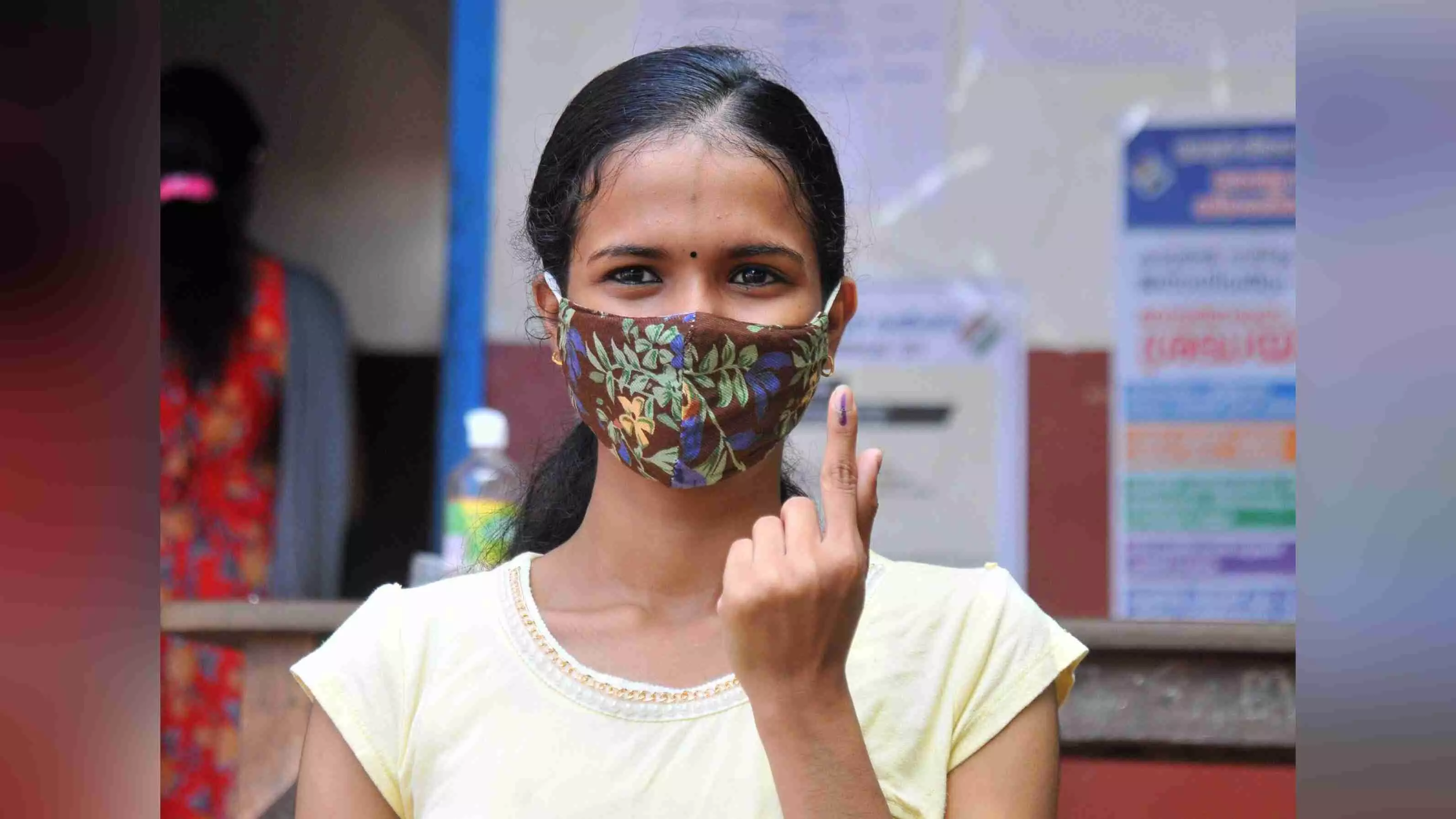Here’s when and how India will be voting in General Elections 2024
Around 96.8 crore Indians are registered voters for the elections this year
By Sulogna Mehta
Representational Image.
Hyderabad: In Telangana and Andhra Pradesh, the general elections to the Lok Sabha 2024 are scheduled to be held during the fourth phase, on May 13. The notification for the polls will be given on April 18. While Telangana has 17 seats for its Lok Sabha constituencies, Andhra Pradesh has 25 Parliamentary constituency seats.
Apart from the general elections, simultaneously, elections to the State Legislative Assemblies of Andhra Pradesh for its 175 constituencies will be held on May 13, for which the notification will be out on April 18.
Polls in seven phases
On Saturday, the Election Commission of India announced the schedule for the general elections for 543 Parliamentary constituencies. The date of polling spans from April 19 to June 1 and will be held in seven phases. The counting of votes for the entire country will be held on June 4. The term of the present government expires on June 16.
Addressing the media, chief election commissioner Rajiv Kumar announced the much-anticipated schedule for the general elections 2024 at Vigyan Bhawan, Delhi. Dates of elections to the State Legislative Assemblies of Andhra Pradesh, Arunachal Pradesh, Odisha and Sikkim were also released. The CEC was accompanied by newly-elected election commissioners Gyanesh Kumar and Sukhbir Singh Sandhu. The officials shared the election preparedness and statistics associated with polling at the media conference.
State Assembly Elections and By-elections
Andhra Pradesh will have its State Assembly Elections on May 13 while elections in Arunachal Pradesh and Sikkim will be held on April 19. The elections to the Odisha Assembly will be held in four phases: May 13, May 20, May 25 and June 1. In 26 Assembly constituencies in different states, by-elections will be conducted during this period.
Lok Sabha Election schedule
While the entire election will be held in seven phases like it was conducted in 2019, a total number of 22 states including Telangana will go for a single-phase polling. On the other hand, seven-phase polling will be conducted in sensitive states including Uttar Pradesh, Bihar and West Bengal.
Polling will be held in two phases in Karnataka, Rajasthan, Manipur, and Tripura and in three phases in Assam and Chhattisgarh. In Jharkhand, Madhya Pradesh and in Odisha, it will be held in four phases. In Maharashtra and Jammu Kashmir, the polls will be held in five phases.
The poll dates across the seven phases are April 19 (Friday), April 26 (Friday), May 7 (Tuesday), May 13 (Monday), May 20 (Monday), May 25 (Saturday) and June 1 (Saturday).
On the first day of polling on April 19, 102 Parliamentary constituencies from 21 states will complete their voting process. Subsequently, on April 26 and May 7, voting will be held in 89 and 94 constituencies respectively.
On May 13 and May 20, polling will be held in 96 and 49 constituencies respectively. During the last two phases on May 25 and June 1, polling will be held in 57 constituencies on each day.
In 2019, the Lok Sabha elections were conducted over seven phases from April 11 to May 19, with the results announced on May 23. In Andhra Pradesh, the 15th Legislative Assembly elections were held on April 11 alongside the general election.
96.8 crore registered voters in 2024
As per the EC, around 96.8 crore Indians are registered voters for the elections this year. Over 21.5 crore voters among them are between 18 to 29 age group and 48,000 are transgenders and around two lakh voters are over 100 years of age.
Out of 1.9 crore first-time voters, around 85 lakhs are women voters. The home voting facility is being provided for 80 plus senior citizens and persons with over 40 per cent disabilities. Over 10.5 lakh polling booths are being established. Around 1.5 crore polling officials and security officials will be functioning for the elections.
The CEC informed that waste management and minimal paper use are being emphasised during the elections to reduce carbon footprints and commit to an environmentally sustainable election.
All-out efforts are also being made to overcome the main challenges including muscle power, money power, misinformation and violations under Model Code of Conduct (MCC).